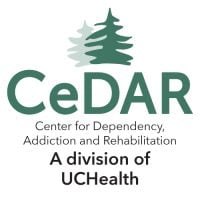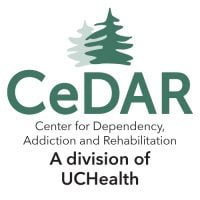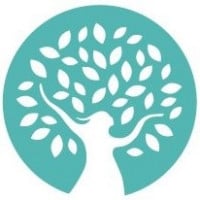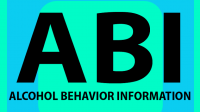About Medical Center of Aurora in Colorado
Medical Center of Aurora is a 100 bed addiction treatment facility in Aurora, Colorado. It provides a range of services to individuals suffering from drug addiction, dual diagnosis, opioid addiction, and mental health issues. Services include dual-diagnosis, inpatient, intensive outpatient, intervention, residential, aftercare support, and outpatient levels of care. These services work with individuals to help them recover from their substance abuse problems and provide them with the tools to lead a healthier lifestyle.
At Medical Center of Aurora, individuals receive the highest quality of care and treatment from a team of specialized professionals. The center is accredited by the Joint Commission (JCAHO) and is dedicated to providing evidence-based practices and services to best fit the needs of each individual, regardless of their individual circumstances. All of their services are tailored to provide individuals with the best opportunities to overcome their addictions and lead a healthier life. Medical Center of Aurora also accepts private health insurance.
Genders
Ages
Modality
Additional
Accreditations

JCAHO
Conditions and Issues Treated
Opioid addiction is a common form of addiction, often caused by prescription drugs that are abused. Addiction is treated by detoxifying the body and following up with therapies to correct behavior and target the root of the problem.
Most opioid addiction begins with patients being prescribed painkillers after an injury or surgery. The body becomes used to the chemicals in these medications and soon no longer responds to their presence. As a result, addicts seek out stronger opiate-based medications like Oxycodone to compensate for the lack of effectiveness.
The most dangerous aspect is that these addictive behaviors often get carried over onto illicit drugs like heroin, which are increasingly potent and result in lower life expectancies.
Dual Diagnosis treatment centers like Medical Center of Aurora provide this treatment tailored to the patient’s specific needs, and they also have a specialized focus on addiction treatment. Drug and alcohol addiction often coexists with another mental illness, such as depression or schizophrenia. In other words, drug addiction is only a symptom of a deeper problem.
When addiction enters into the picture, it can often lead to dangerous consequences in the addict’s life. For example, when addiction is paired with major depression, it can lead to suicidal thoughts or actions. When someone is addicted to drugs or alcohol, they often experience a failure to control their impulses and difficulty decision-making.
Dual diagnosis for drug addicts can be very effective when treating drug addiction in Aurora, CO.
Levels of Care Offered
This center offers a variety of custom treatment tailored to individual recovery. Currently available are Aftercare Support, Dual-Diagnosis, Inpatient, Intensive Outpatient, Intervention, Outpatient, Residential, with additional therapies available as listed below.
The inpatient rehab at Medical Center of Aurora promises an intense and effective treatment. Inpatient rehabs are particularly recommended for those with a severe addiction to drugs. Detoxing at a rehab center ensures that the patient receives 24-hour medical supervision to ensure the best possible chance of recovery. Medical staff is readily available to intervene in case of withdrawal symptoms or other complications. This is not the case with outpatient treatment, where patients may be discharged after the detoxification process is complete.
Inpatient facilities provide residential and holistic treatment, with access to experienced medical professionals and rehab specialists. This ensures the best possible recovery and is recommended for patients with severe addiction seeking drug treatment.
Intensive Outpatient Programs (IOPs) are a form of drug treatment that allows individuals to receive the therapy they need while remaining in their homes and community. IOPs allow for the flexibility to continue working and living at home while still meeting treatment demands.
Outpatient treatment programs are less intensive than an inpatient program. Participants live at home while working or going to school. Benefits include being able to continue relationships with family, friends, and work/studies. Treatment includes educating patient on addiction to drugs, medication, and counseling. Benefits include being able to continue relationships with family, friends, and work/studies. Treatment includes educating patient on addiction to drugs, medication, and counseling. Counseling sessions are for either individual or group.
Residential treatment programs are those that offer housing and meals in addition to substance abuse treatment. Rehab facilities that offer residential treatment allow patients to focus solely on recovery, in an environment totally separate from their lives. Some rehab centers specialize in short-term residential treatment (a few days to a week or two), while others solely provide treatment on a long-term basis (several weeks to months). Some offer both, and tailor treatment to the patient’s individual requirements.
Drug rehab intervention aims to make sure patients understand the risks of their addiction and possible outcomes if they continue their behavior. They must learn how their addiction affects those around them and allow a therapy session to help move past the physical symptoms.
Interventions are used in drug rehab to help patients overcome their addiction to drugs. They often include psychotherapy or behavioral therapy, group therapy, family counseling, and peer support. Each intervention is designed to provide a unique perspective of how the addiction occurs and what can be done to stop it.
Aftercare Support in drug rehab is crucial because it helps people stay sober after treatment. The benefits of Aftercare Support are that it provides a pathway that will help people get sober for life. It supports healing at all levels, physical, mental, emotional, and spiritual.
Therapies & Programs
A person looking for drug recovery should know that group therapy is an essential tool. Group therapy provides accountability and friendship to people with addiction. It is recommended as a lifetime treatment habit. Group therapy occurs in a group setting as opposed to a one-on-one setting. It benefits patients by providing a feeling of support and letting them know they are not alone. Patients at Medical Center of Aurora also learn to build trust and understanding and gain perspective through discussions.
Dialectical behavior therapy is a type of cognitive-behavioral therapy that focuses on eliminating specific negative thoughts that can potentially lead to an individual inflicting self-harm. It helps treat patients exhibiting uncontrollable emotions, intense mood swings, and borderline personality disorders.
The term “dialectic” means the integration of opposites. In the substance abuse context, dialectical behavior therapy refers to accepting the patient’s addiction and changing their thoughts and behavior. It improves life skills such as controlling intense emotions without reacting impulsively, resolving interpersonal conflicts effectively, and promoting awareness about self and others.
Cognitive behavioral therapy (CBT) is a type of psychotherapeutic treatment that is focused on changing negative ways of thinking that contribute to addictive behavior.
Cognitive behavioral therapy is beneficial for:
- People who are seeking to overcome addictive behavior
- Those who struggle with addictive behavior and mental illness
- People who have a genetic history of addiction in their family
- Those who don’t want to depend on medications
- Those who need a more practical treatment approach
Thinking about nutrition is an odd thing when you’re strung out. You are probably so low physically that all you want to do is sleep, eat comfort food and get high again. It’s hard to imagine having enough energy to care about what kind of food you are eating but think about it. Your body has gone through some severe physical stress, so it is vital to give it the building blocks it needs to recover. It’s equally important to remember that malnutrition can affect your mood and energy level, which affects your desire to get sober.
If you’re eating right, you’ll have more energy for productive activities, such as going to meetings or being with other sober people in Aurora, Colorado. You’ll have more strength to fight cravings, and you won’t be so low that they are overwhelming. You will think clearly enough to make sober decisions. Finally, good nutrition helps keep your body strong against the familiar ravages of drug use–tuberculosis, hepatitis, abscesses, infections, etc.—as well as the physical symptoms of withdrawal.Nicotine replacement therapy can help addicts reduce or eliminate their cravings for nicotine. By replacing the harmful substances in tobacco with less potent chemicals, most smokers can gradually wean themselves off cigarettes without experiencing intense cravings.
During these sessions, a therapist will work with the addict to gradually reduce their dependence on nicotine by controlling how much they smoke and providing appropriate breaks between cigarettes. Using this type of therapy in combination with other strategies can help smokers learn how to quit smoking for good and avoid relapse.
Patient Experience
Creative Arts
In Creative Arts Therapy for addicts, the final product matters far less than the experience of creation and expression itself. It is believed that enhancing creativity and developing skills related to it can help people recover faster. Activities such as painting, writing, acting, and dancing are considered therapeutic and hosted and managed by Medical Center of Aurora in Aurora, CO. They become outlets for patients to blow off steam, channel their emotions, and express their thoughts and feelings.
Experiential Therapy at Medical Center of Aurora
Experiential therapy is a type of therapy that has been found to be effective in the treatment of substance abuse. It is a “hands-on” approach, which can involve anything from acting to rock climbing. The individual must trust the therapist for this therapy to work. This therapy helps individuals revisit and heal from past traumas and has been used in various behavioral and eating disorders.
Payment Options Accepted
For specific insurance or payment methods please contact us.
Is your insurance accepted?
Ask an expert, call (888) 674-0062
Additional Details
Specifics, location, and helpful extra information.
Aurora, Colorado 80011 Phone Number(303) 360-3701 Meta DetailsUpdated November 25, 2023
Staff Verified
Medical Center of Aurora Patient Reviews
There are no reviews yet. Be the first one to write one.
Aurora, Colorado Addiction Information
The Centennial State has slipped to a ranking of 12th in the country for drug abuse. Each year around 24% of the state's population uses illegal drugs while nearly 5% of its population abuses alcohol. Substance-related deaths in Colorado were responsible for 15.12% between 2008 and 2017. Fortunately, Colorado drug and alcohol addiction treatment are available to help a person overcome addiction.
The drug addiction problem in Aurora, CO is severe. The number of opioid-related deaths in the area quadrupled from 2013 to 2017. It's estimated that there are over 2,000 drug overdoses in Aurora each year. Many addiction treatment centers will offer a variety of therapies and treatments, such as group therapy, individual therapy, family therapy, medication-assisted treatment, and holistic therapies.
Treatment in Nearby Cities
- Fort Collins, CO (60.9 mi.)
- Woodland Park, CO (52.2 mi.)
- Aspen, CO (112.6 mi.)
- Edwards, CO (94.2 mi.)
- Clifton, CO (198.5 mi.)
Centers near Medical Center of Aurora
The facility name, logo and brand are the property and registered trademarks of Medical Center of Aurora, and are being used for identification and informational purposes only. Use of these names, logos and brands shall not imply endorsement. RehabNow.org is not affiliated with or sponsored by Medical Center of Aurora.








